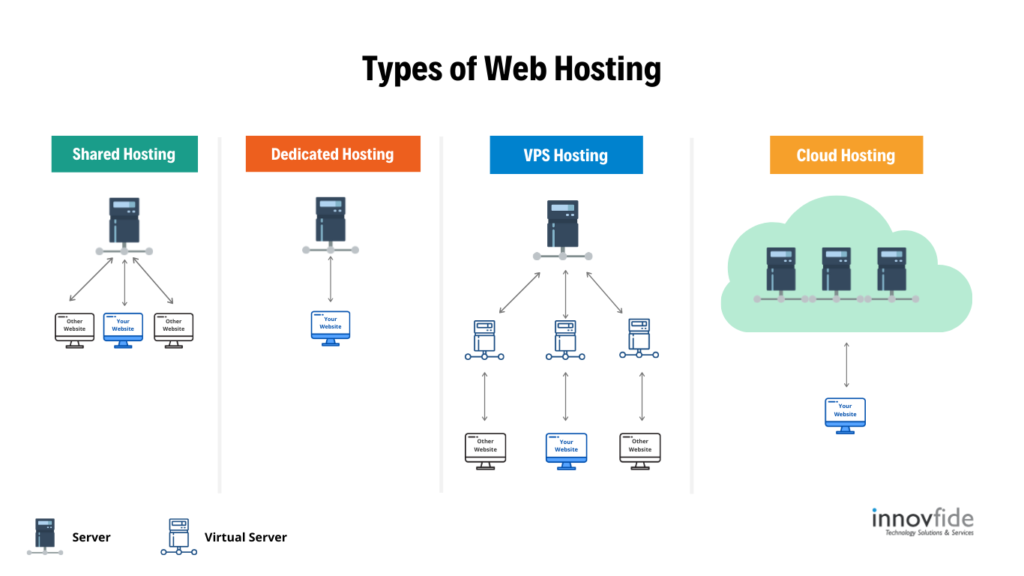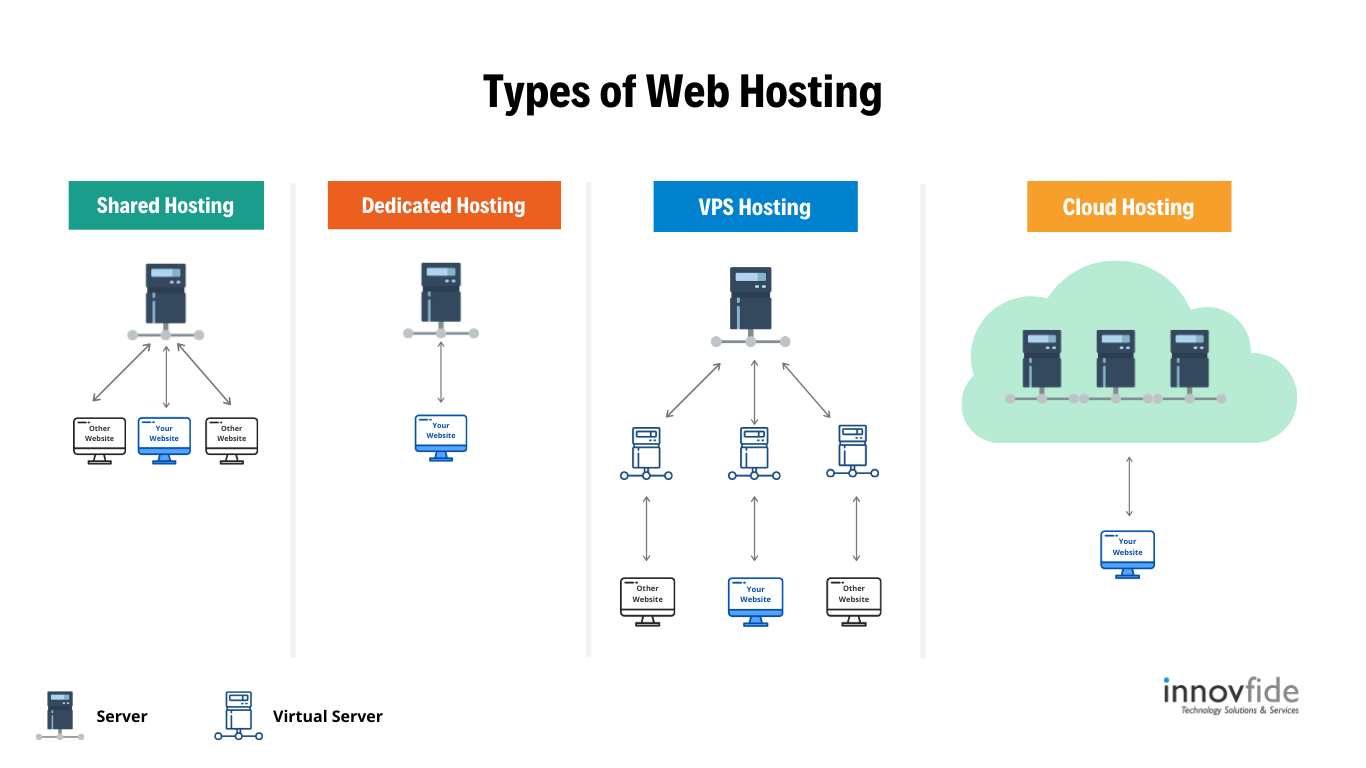In the world of the internet, Hosting is the service that gives websites on a server access and storage space. Furthermore, This enables people and businesses to enable World Wide Web accessibility for their websites. What is hosting? A comprehensive Guide is provided here.
In essence, Hosting is comparable to leasing a virtual residence for your website. The files on your website are your property, the server is tha building. The hosting company is the landlord. In essence, a visitor to your website is knocking on your virtual door. What is hosting? A comprehensive Guide
In order for websites, apps, or data to be stored and made available online, a server space must be provided by hosting.

What is hosting? how hosting functions:
Here’s given a compete guide on how hosting functions?
Selecting the Hosting Provider
Based on factors lie the kind of website, anticipated traffic, and needed resources, people or organizations select a hosting provider.
Plans: Different storage, bandwidth, and features levels are available for a rang of plans offered by hosting providers. What is hosting? A comprehensive Guide is given here.
Configuring the surver Allocation:
The hosting company allots server space in accordance with the plan selected.
This could involve using a VPS and which dedicates a portion of a server to one user, dedicated hosting, which allocates an entire server to one user, or shared hosting, which hosts many websites on one server.
Configuration: You install web servers (such as Apache or Nginx), databases (such as MySQL or PostgreSQL), and other necessary services on the server. What is hosting? A comprehensive Guide
Adding files to a website:
File Transfer: In addition, You upload website files to the server using FTP (File Transfer Protocol) or the hosting provider’s control panel.
Organization: You arrange files into directories to ensure the website’s structure is upheld.
Configuring a Domain Name:
Domain Registration: You register the domain name for the website and assign it to the server’s IP address.
DNS Configuration: You change the DNS (Domain Name System) settings to ensure the domain name directs users to the appropriate server.
When users enter the domain name of the website into their browser, the server receives HTTP requests for website access.
Server Reaction: In addition, After handling the request, The server returns the webpage files to the user’s browser.
Rendering: The user sees the webpage after the browser renders the HTML, CSS, and JavaScript files. What is hosting? A comprehensive Guide is given here.
Upkeep and Assistance:
Server Management: Hardware maintenance, software updates, and security patching are handled by hosting companies.
Support Services: In addition, to help with technical problems and maintain the website’s accessibility and functionality, providers provide customer support.
Safety Procedures:
Data Protection: IN order to safeguard data, hosting companies use firewalls, SSL certificates, and frequent backups.
Monitoring: furthermore, Ongoing monitoring keeps the website safe from online attacks by assisting in the direction and prevention of security breaches.
In Summery, Hosting entails a hosting company providing server space, setting up and maintaining servers, and making sure that users can access websites through the internet. Hosting services make it possible for websites to operate effectively and safely, satisfying the needs of both users and visitors, through proper set up, Domain configuration, and continuous support.

What is hosting? A comprehensive Guide:
In essence, a server is a strong computer that has been tuned to manage numerous requests and provide content over. In addition, You’re renting space on a server to hold the files for your website when you host it. What is hosting? A comprehensive Guide.
Important Parts of a Server:
Processor: The server’s “brain”, responsible for calculations and request processing.
Random Access Memory (RAM) serves as short-term storage for data currently in use by the server.
Storage: Databases, website files, and other data are stored on hard drives or SSDs. A network interface card (NIC) connects the server to the internet. What is hosting? A comprehensive Guide
The Functions of a server in Hosting:
Request: The computer of the person who visits your website makes a request to the server.
Processing: After receiving the request, the server looks through it to find the desired files.
Delivery: The visitor’s computer receives the requested files (HTML, CSS, images, etc) from the server.
Display: The website is a displayed by the visitor’s web browser after it has interpreted the files.
What is hosting? A comprehensive guide: Types of hosting servers:
Choosing the correct sort of hosting is essential for your website’s performance, trustworthiness, and scalability. What is hosting? A comprehensive Guide is given here. Here’s a breakdown of the most popular types:

Shared Hosting:
- The most common and affordable alternative.
- Several websites use a single server.
Indeed, Ideal for small to medium-dazed websites with little traffic.
Pros: Low cost, simple to use, and requires no server management.
Cons: In Addition, Limited resources, performance may be impacted by other websites on the server.
Virtual Private Server (VPS) Hosting:
- Middle ground between shared and dedicated hosting.
- Each website is assigned a dedicated server space.
- Provides greater control and resources than shared hosting.
- Ideal for growing websites with moderate traffic and specialized resource requirements.
Pros: Improved performance, increased control, scalability, and root access.
Cons: Expensive compared to shared hosting, and requires some technical knowledge.
Dedicated Server Hosting:
- The entire server is dedicated to one website.
- Maximum level of control and performance.
- Ideal for large websites with significant traffic and demanding applications.
Pros: Maximum resources, complete control, and customization.
Cons: The most expensive choice, requiring technical competence. What is hosting? A comprehensive Guide
Cloud Hosting:
- Here too The entire server is dedicated to one website.
- And Maximum level of control and performance.
- Ideal for large websites with significant traffic and demanding applications.
Pros: Furthermore, Maximum resources, complete control, and customization.
Cons: The most expensive choice, requiring technical competence. What is hosting? A comprehensive Guide
Managed Hosting:
- The hosting provider handle the Server management and maintenance.
- Suitable for organizations who wish to focus on the website content without worrying about technological issues.
Pros: Additionally, No server management, skilled assistance, and optimal performance.
Cons: In addition, Higher cost than self-managed hosting.
Other Types:
Reseller Hosting: Buying hosting packages from a provider and reselling them to other.
Website Hosting: It is specifically designed for WordPress websites.
Colocation: It means renting actual server space in a data center.
I personally experienced all the hosting servers but found the Blue Host best in a complete way. What is hosting? A comprehensive Guide to hosting. Furthermore, If you buy a hosting service buy using our link, you can enjoy the best Services. Here’s given the link.


